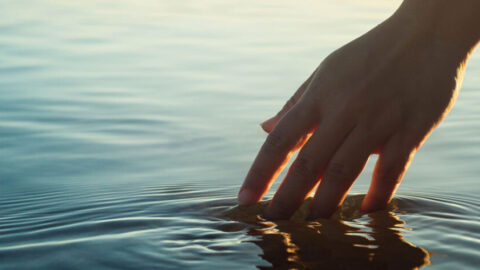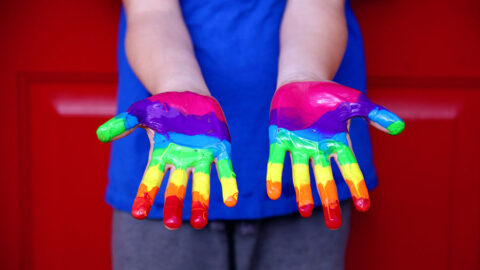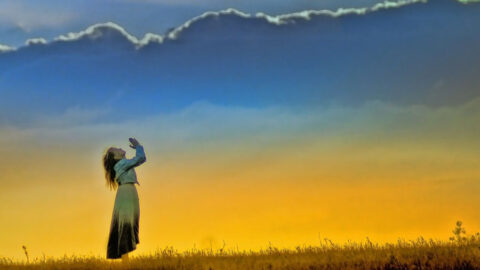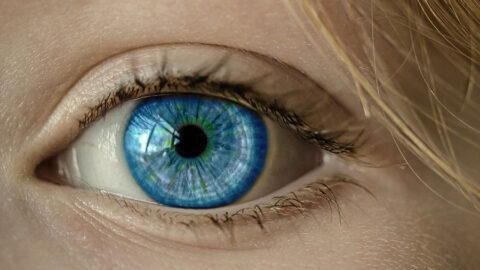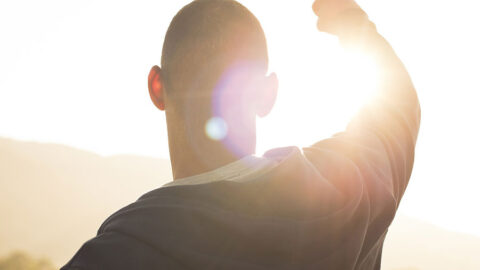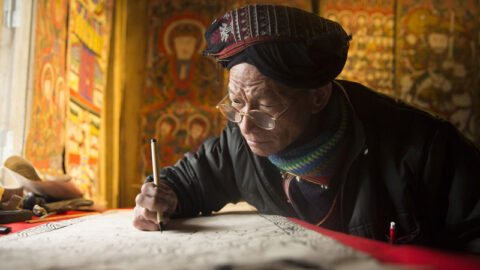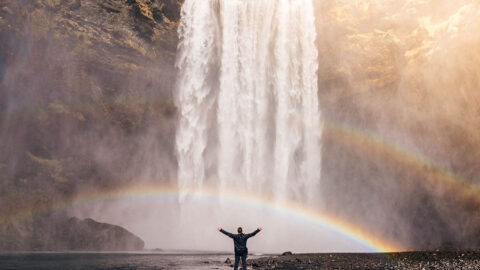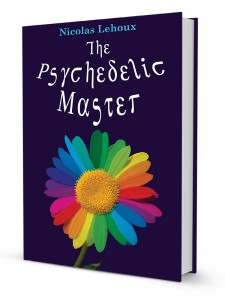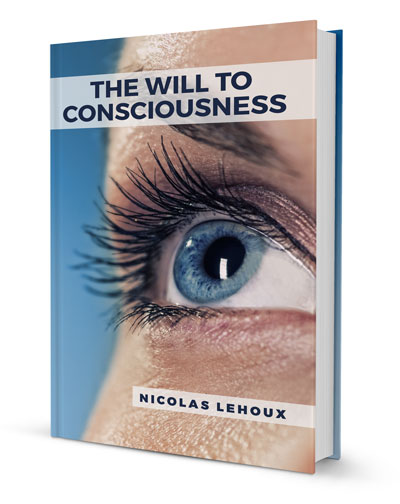Extract from The Will to Consciousness
.
50
I am resigned to no longer doing anything. I let everything happen in me. It’s subtle, but it works. It makes things easier for me. If I look at my life as a whole, I realize that I have always favored ease. Even when I was receiving social assistance and had almost no money, I never felt that life was hard. Everything works out because I am in the right place at the right time. I have often run headlong into prejudices and lack of understanding, and though this still happens, it disturbs me less and less. I do not seek others’ approval because it’s usually impossible to obtain, anyway. It’s easy to be a revolutionary when you’re in school and have no responsibilities. You see a person for who they truly are only once they’ve become an adult. The most original ones quickly become average and insipid. In my case, however, I really tried to apply the first sentence of this paragraph, to firmly grasp its essence. I applied myself to doing nothing… unless I felt inspired. The nearly ten years I spent on social assistance provided me with all the time I needed. And if I was so prolific in my creative work, it is not because I felt obliged to do it, but because I let it happen in me effortlessly.
51
I have experienced times when my mind was completely silent. Even during those moments, I was able to perceive this irreducible factor, which is consciousness. It was then that I realized that my consciousness did not need my self to Be. It needs it to perceive itself, like a mirror, but it can do without it. Willful consciousness is a state that surpasses my self immeasurably. It demands absolute trust in my Being. My self is so limited that I would be lost were I not able to perceive that I am much more than Nicolas Lehoux. I have innumerable parallel lives that I can tap into at my leisure to learn more easily. For example, by realizing that I am a gypsy in a parallel life, it is easier for me to learn Spanish and salsa. I realize that instead of learning something external to me, I can know it internally. In this way feelings come to me that recall life experiences. I do this in my art. I enter myself and come out with infinite knowledge that often surprises me. Unlike those who are channels, I appropriate this knowledge. I don’t consider that it originates from an entity other than me that uses me as a channel, but rather from my Being, which is more my self than myself.
52
The conscious life cannot be integrated without first being experienced. The first time I experienced it, I felt the existence of something even though my mind had stopped. It didn’t scare me; I was not afraid of dying. Such an experience makes it possible to relativize the world. There are many atheists today. For them, there is nothing beyond this world. This is absurd to me, given the repeated experiences I have had that have shown me that beyond Nicolas Lehoux exists consciousness. The latter is infinite, while my self is finite. It is a given that my self is doomed, like everything else in nature. Life itself presupposes death. But consciousness has nothing to do with life. Living in a willfully conscious way is an unnatural act.
53
Consciousness is misunderstood today. Materialists believe that it is only a secretion of the brain. My immaterialist experiences make this hypothesis unlikely. I bathed in the absolute; I surrendered myself to be one with the Great All. These are experiences of a rare depth. I might not have come back had my creative work not been of such vital importance to me. I have deactivated my person (from the Latin persona, meaning “mask”) but my work allows me to be fully conscious while still remembering what my self is. By eclipsing my self, I realized that, despite everything, something vast remained. I knew intuitively that this is what the Great Initiates call consciousness.
54
Every day I look at the world through the eyes of the Living God. It’s become a habit. My physical eyes are not the only ones at work. I activated my third eye and it works in symbiosis with the other two. Even before I started living consciously, my vocation as artist helped me develop an exceptional way of seeing. I remember when I first arrived in Montreal, I wrote a short poem in which I pointed out that I no longer wanted to listen (to others) but to See (by myself)—see the world as it is without filters imposed by others, without listening to what others think. I wanted to make up my own mind. So I rearranged my world. I refused to enter the labor market and simply observed the world. I drew every day. I always carried my notebook and pencils. I sketched people in parks, in cafes, in the streets. I was teaching my eyes to See. I stopped using words in my comic strips and began to perceive the world more simply without the filter of words that made me so rational. I understand better now—I was intuitively training myself to live in a willfully conscious way.
55
Drawing as much as I did during my adolescence and early adult life taught me to integrate the creative aspect of my personality. Because I create something beautiful every day, I have come to understand that since this beauty emanates from me, I am beautiful.
56
When you do observational drawing, you must forget your own interpretation of the subject in order to really focus on the object you want to draw. In this way it is good training for living consciously because you must put your mind aside to reproduce the model as accurately as possible. This demands your entire attention; you have to be fully absorbed by the task. This strikes me as strangely similar to the willfully conscious mindset that I deal with in this book. And I can see how the thousands of hours spent sketching helped me attain one-pointed focus and not be distracted by anything.
57
Observational drawing helps you see reality as it is, without embellishing it, without bypassing it, without interpreting it. To succeed in reproducing it as it is you must put yourself in a state of extreme receptivity. You have to really see what you are drawing instead of taking only a part of it and filling in the rest with your imagination. To live in a willfully conscious way also demands Seeing reality for what it is. You must know how to distinguish fantasies from reality so as not to let your imagination play tricks on you.
58
Objective observation viewed through the “I Am” perspective is paradoxical in that the absolute is immanent in the relative. I observe the world through the eyes of the Living God so I can live in a willfully conscious way. To learn to observe the world as it is may require lengthy training, but when you live consciously you can claim to be truly alive. It is worth resisting the desensitization instituted by the manipulative plutocratic system and developing a vision of the world based on freedom and consciousness.
59
The thousands of hours I spent sketching people in parks and cafes taught me to See the world instead of merely looking at it. To draw the body and face of a person in public places requires efficiency, speed and subtlety. People move, they do not hold a pose long and they get nervous if they notice they are being observed. You must therefore look at them without fixing them. You learn to quickly glean the geometric structure of the model on which you can, given the time, add details and ultimately shadows and light. This technical exercise allowed me to develop the ability to fix in my memory a photographic image that sums up the essence of what I want to draw. I am able to see the world and synthesize its essence without losing myself in the details. The world is filled with signs and symbols that show us the right path, which tell us that we are living harmoniously or try to draw our attention to warn us about something. The landscape perceived by the one who lives in a willfully conscious manner is all-encompassing—a vast perspective he offers himself from his exalted vantage point. For those living only at the first level, on the other hand, the world is poor and meaningless because they cannot give meaning to the information they are offered, even if it is abundant.
.
Extract from The Will to Consciousness


